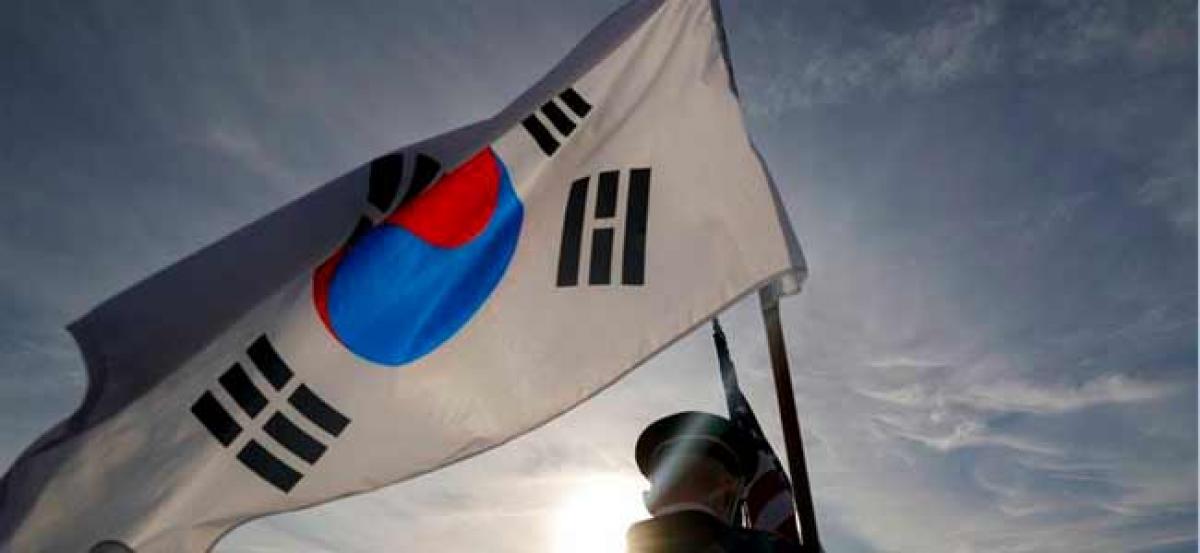Live
- Jordan Cox ruled out of England's Test series in New Zealand due to a broken thumb
- BUDA Commissioner and member arrested
- Tender to be called for new gates to TB dam in January
- TTD EO inspects Tiruchanoor Brahmotsavam arrangements
- Crisis grips Davanagere farmers despite bumper crop
- NSU probes drug use incident
- Yathindra Siddaramaiah’s statement on judiciary sparks petition for contempt of court
- Initiate steps for implementation of GER: Minister Anam
- Mammootty and Mohanlal to Team Up for Their 50th Film Together
- CAG points out increasing debts during 2022-23
Just In

South Koreas Supreme Court said on Thursday that conscientious objection is a valid reason to refuse mandatory military service, a landmark change in the courts decadeslong stance that is expected to impact about 930 pending cases
South Korea's Supreme Court said on Thursday that conscientious objection is a valid reason to refuse mandatory military service, a landmark change in the court's decades-long stance that is expected to impact about 930 pending cases.
The full-bench decision overturns about five decades of precedents that punished conscientious objectors for refusing mandatory military service and is in step with changing South Korean attitudes as relations with North Korea thaw.
The court's decision concerned only one defendant, a 34-year-old man surnamed Oh, a Jehovah's Witness whose trial court guilty verdict was upheld at the appellate court.
Through decisions in 1969 and 2004, South Korea's Supreme Court had maintained that religious beliefs or conscience were not valid reasons to refuse mandatory military service.
South Korea's Military Service Act says that if a conscripted person refuses "without valid reason" the person is to be given jail time of up to three years.
Some 930 cases are currently in court concerning alleged violations of the Military Service Act, according to Jarrod Lopes, spokesman for Jehovah's Witnesses' world headquarters.
There were signs of a change in attitude towards mandatory military service earlier in the year, with South Korea's Constitutional Court in June ruling that the current law -- which does not specify alternatives to military service -- does not align with the country's constitution. There was also a number of "not guilty" verdicts in lower courts for conscientious objectors.
In a survey of 527 men eligible for mandatory military service, conducted from May this year, 38.8 percent said that those in alternative service, such as serving as industrial workers or a public health doctor, can be regarded as servicemen as long as they live in camps during the period, said the National Human Rights Commission of Korea.
The defense ministry said earlier this year it will gradually shorten periods of mandatory military service by 2-3 months until 2022, from 21 months to 18 months for army servicemen.
South Korea, which is still technically at war with North Korea, is one of the few countries that has mandatory conscription for all men as a rule.
However, a recent thaw between relations has resulted in an inter-Korean military pact signed in September, with the two Koreas agreeing to halt military drills, set up a no-fly zone near the border and gradually remove landmines and guard posts within the Demilitarised Zone, among other steps.

© 2024 Hyderabad Media House Limited/The Hans India. All rights reserved. Powered by hocalwire.com







